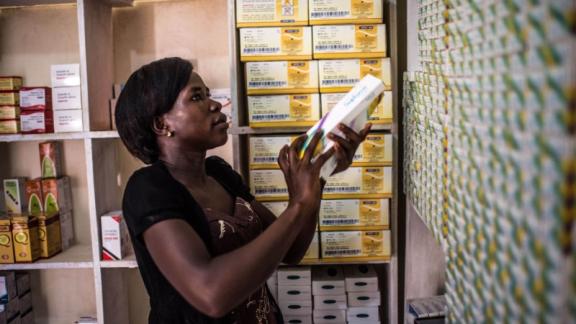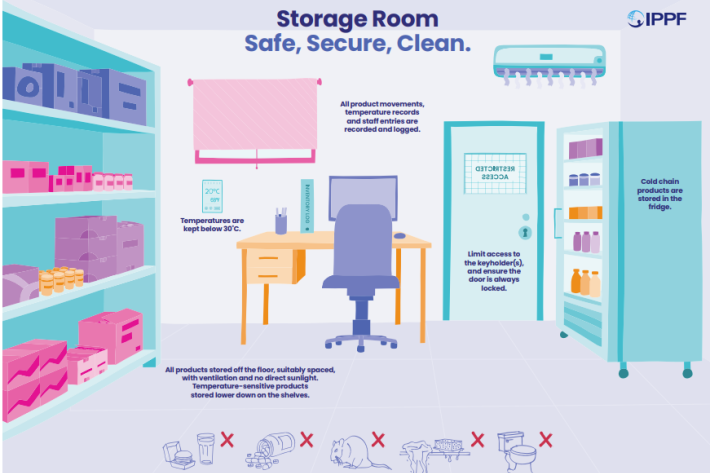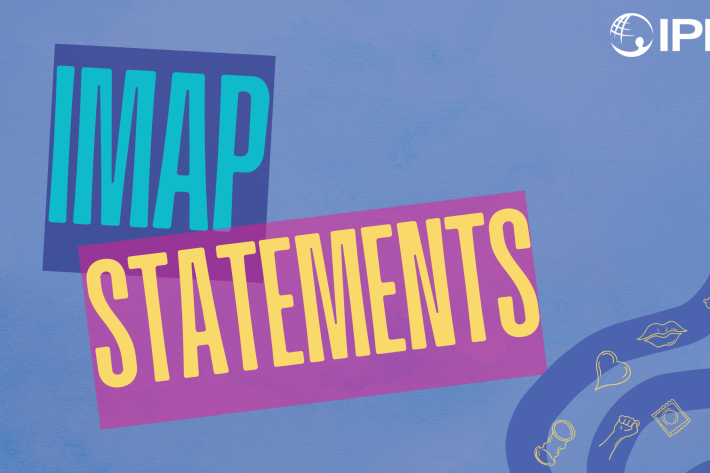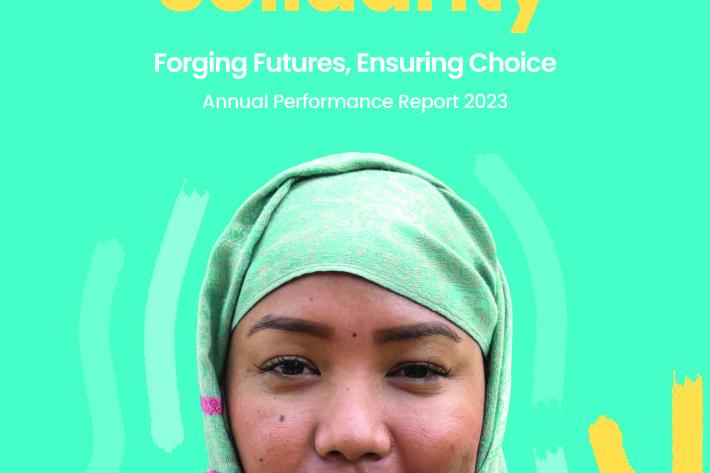Spotlight
A selection of resources from across the Federation
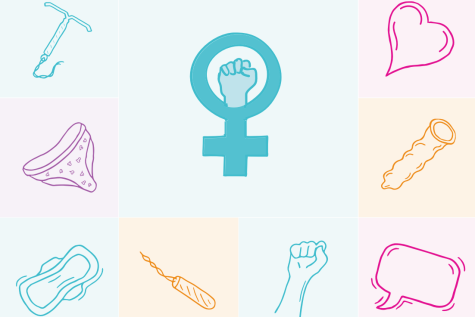
Technical Brief: Designing and Delivering Inclusive, Rights-Based Sexual and Reproductive Healthcare to Transgender and Gender Diverse People
This technical brief outlines key recommendations across several sexual and reproductive health service areas to promote access to inclusive care for transgender and gender diverse people.
Filter our resources by:


| 03 May 2012
Rights of People Living with HIV: A guidance package
Imperatives of both human rights and public health require that health care and legal systems support the sexual and reproductive health and rights of people living with HIV. This Guidance Package, developed by people living with HIV, describes the important issues and key areas for change. Going forward, legislators, government ministries, international organizations, donors, and community - and faith-based organizations - with the continued input and guidance of people living with HIV, must work together to put in place the services and legal supports that will build better sexual and reproductive health for everyone.

| 03 May 2012
IPPF Sexual Rights Declaration Pocket Guide

| 02 May 2012
Sexual Rights: An IPPF declaration (abridged)
The IPPF declaration is grounded in and informed by international agreements such as United Nations Conventions. This abridged version to be used in conjunction with IPPF's original Sexual Rights Declaration.
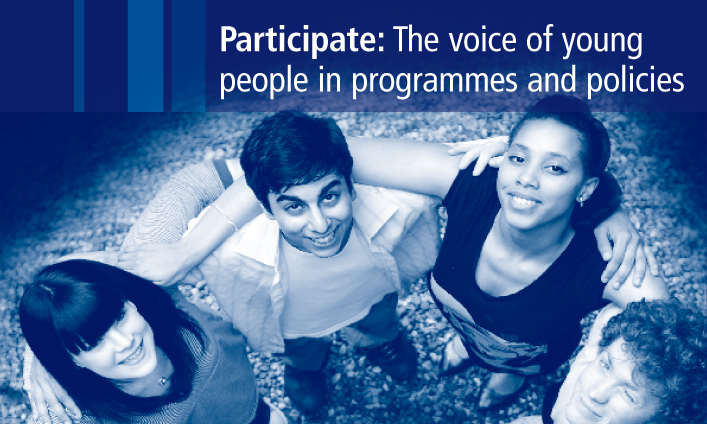
| 19 April 2012
Participate: The voice of young people in programmes and policies
This is part of the Inspire pack of resources on young people's sexual and reproductive health services and programmes, for health providers and practitioners.
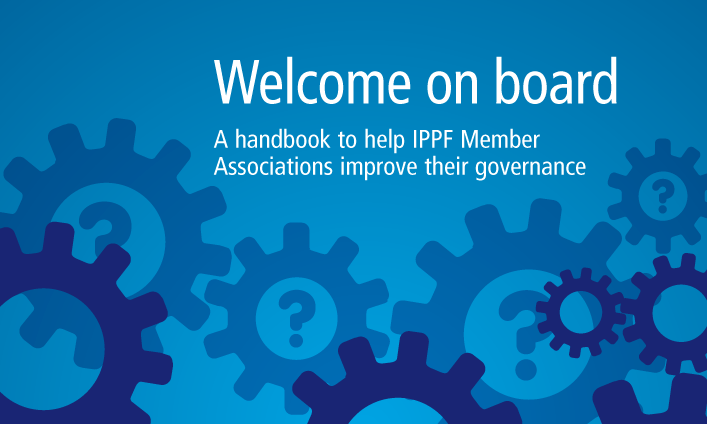
| 19 April 2012
Welcome on Board (governance handbook)
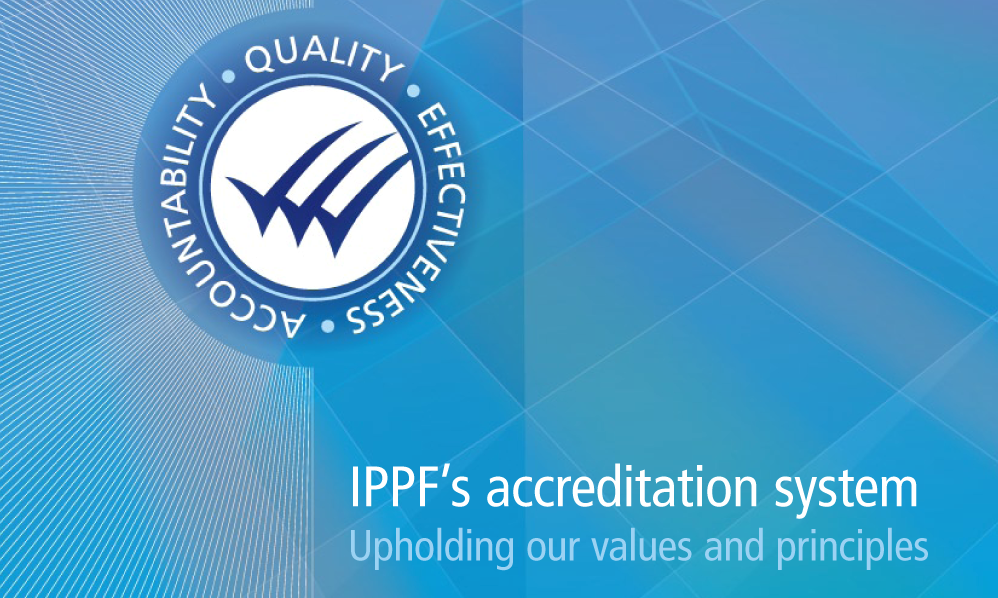
| 19 April 2012
IPPF's Accreditation System
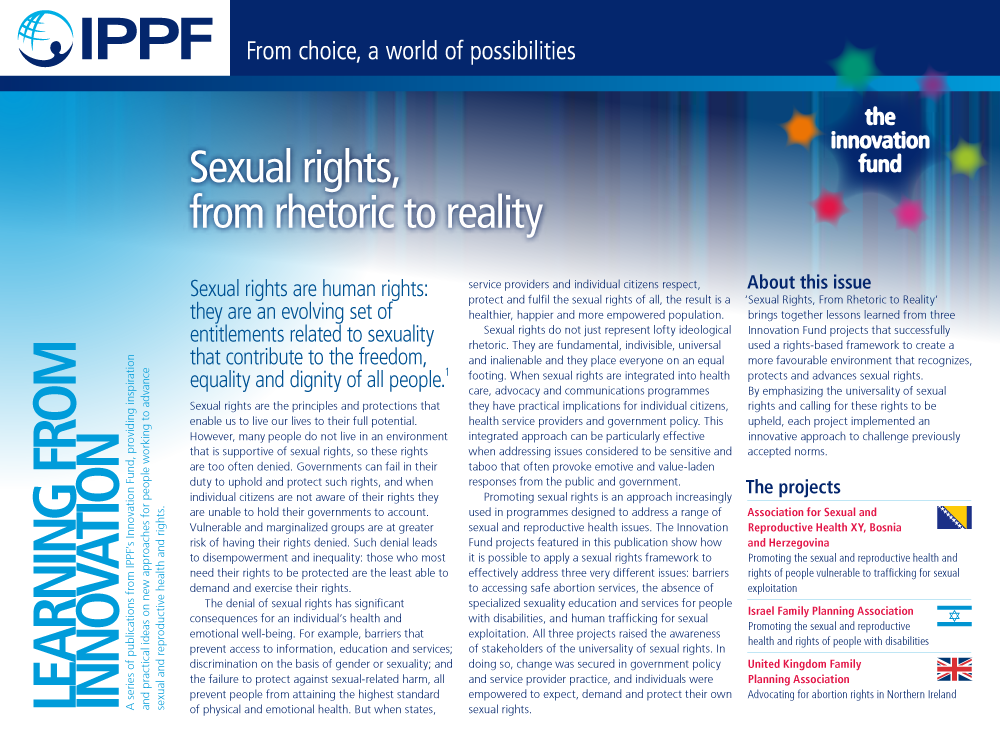
| 19 April 2012
Sexual Rights: From rhetoric to reality
Sexual rights are the principles and protections that enable us to live our lives to their full potential. However, many people do not live in an environment that is supportive of sexual rights, so these rights are too often denied. Governments can fail in their duty to uphold and protect such rights, and when individual citizens are not aware of their rights they are unable to hold their governments to account. Vulnerable and marginalized groups are at greater risk of having their rights denied. Such denial leads to disempowerment and inequality: those who most need their rights to be protected are the least able to demand and exercise their rights. The denial of sexual rights has significant consequences for an individual’s health and emotional well-being. For example, barriers that prevent access to information, education and services; discrimination on the basis of gender or sexuality; and the failure to protect against sexual-related harm, all prevent people from attaining the highest standard of physical and emotional health. But when states, service providers and individual citizens respect, protect and fulfil the sexual rights of all, the result is a healthier, happier and more empowered population. Sexual rights do not just represent lofty ideological rhetoric. They are fundamental, indivisible, universal and inalienable and they place everyone on an equal footing. When sexual rights are integrated into health care, advocacy and communications programmes they have practical implications for individual citizens, health service providers and government policy. This integrated approach can be particularly effective when addressing issues considered to be sensitive and taboo that often provoke emotive and value-laden responses from the public and government. Promoting sexual rights is an approach increasingly used in programmes designed to address a range of sexual and reproductive health issues. The Innovation Fund projects featured in this publication show how it is possible to apply a sexual rights framework to effectively address three very different issues: barriers to accessing safe abortion services, the absence of specialized sexuality education and services for people with disabilities, and human trafficking for sexual exploitation. All three projects raised the awareness of stakeholders of the universality of sexual rights. In doing so, change was secured in government policy and service provider practice, and individuals were empowered to expect, demand and protect their own sexual rights. Sexual Rights, From Rhetoric to Reality brings together lessons learned from three Innovation Fund projects that successfully used a rights-based framework to create a more favourable environment that recognizes, protects and advances sexual rights. By emphasizing the universality of sexual rights and calling for these rights to be upheld, each project implemented an innovative approach to challenge previously accepted norms.

| 15 January 2012
HIV Works
The training content and exercises described in this guide are meant to offer ideas and inspiration for implementing your own HIV workplace policy. It is not an exhaustive guide and there are other training manuals that you may also wish to use to supplement this guide.
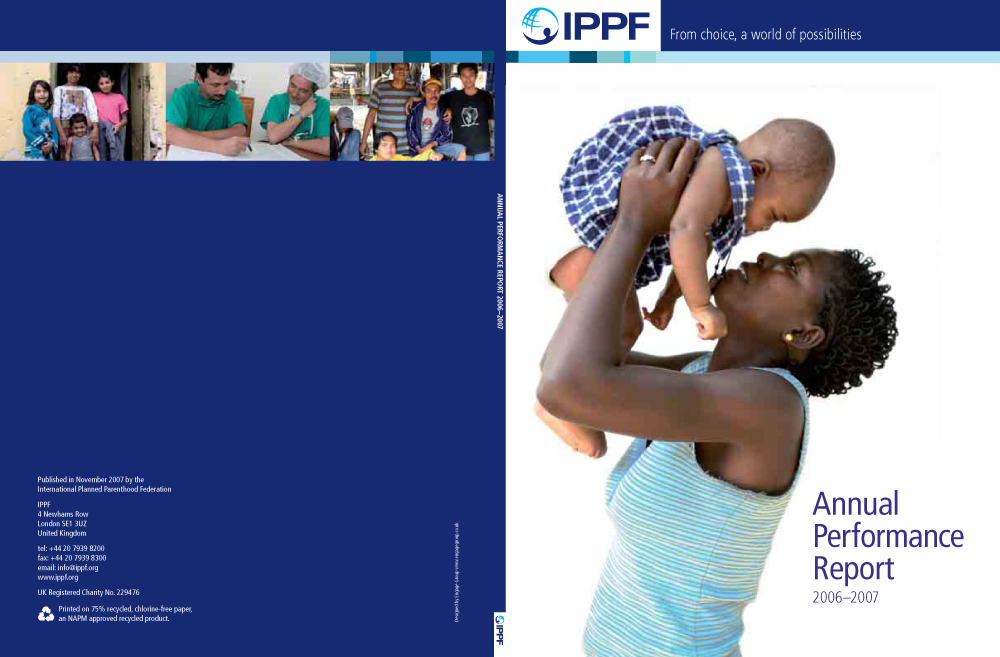
| 22 November 2011
Annual Performance Report 2006-07
This Annual Performance Report highlights some of IPPF’s achievements during 2006 from around the world. Case studies on each of IPPF's priority areas are presented from each of IPPF's Regions. The results shown in the organization's global indicators illustrate the progress being made in the implementation of IPPF's Strategic Framework 2005–2015. Key initiatives to improve the Federation’s organizational effectiveness and accountability are also highlighted.
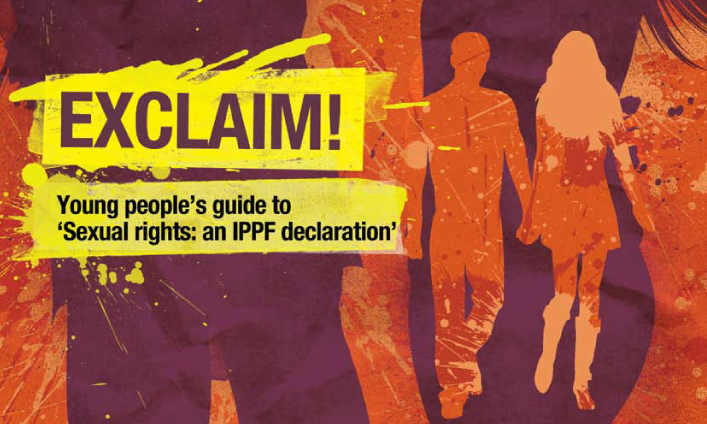
| 21 November 2011
Exclaim! Young People's Guide to 'Sexual Rights: An IPPF declaration'
Exclaim – young people’s guide to ‘Sexual rights: an IPPF declaration’ builds on‘sexual rights: an IPPF Declaration’ introduces key concepts relating to human rights explains how human rights apply to young people’s sexuality examines ten fundamental sexual rights as they relate to young people supports young people to increase their understanding of sexual rights Young people are sexual beings. They have sexual needs, desires, fantasies and dreams. It is important for all young people around the world to be able to explore, experience and express their sexualities in healthy, positive, pleasurable and safe ways. This can only happen when young people’s sexual rights are guaranteed. Young people’s rights are often neglected, ignored or misunderstood; and young people are especially vulnerable to sexual rights violations. Exclaim sets out a framework for understanding how human rights apply to young people’s sexuality. It offers practical ideas about how to translate sexual rights into actions for and by young people: increase your own and your community’s knowledge and awareness about young people’s sexual rights and how they are different from adults’ rights improve youth-friendly sexual and reproductive health services improve and expand comprehensive sexuality education strengthen youth leadership and advocacy at local, national and regional levels Learn more about what the ten core sexual rights are and what each right means for young people: the right to equality the right to participation the right to life and to be free from harm the right to privacy the right to personal autonomy and to be recognized as an individual before the law the right to think and express oneself freely the right to health the right to know and learn the right to choose whether or not to marry or have children the right to have your rights upheld Includes: a glossary of key terms a table of human rights agreements that are relevant to sexual rights a poster summarising what sexual rights are and how they can help young people







